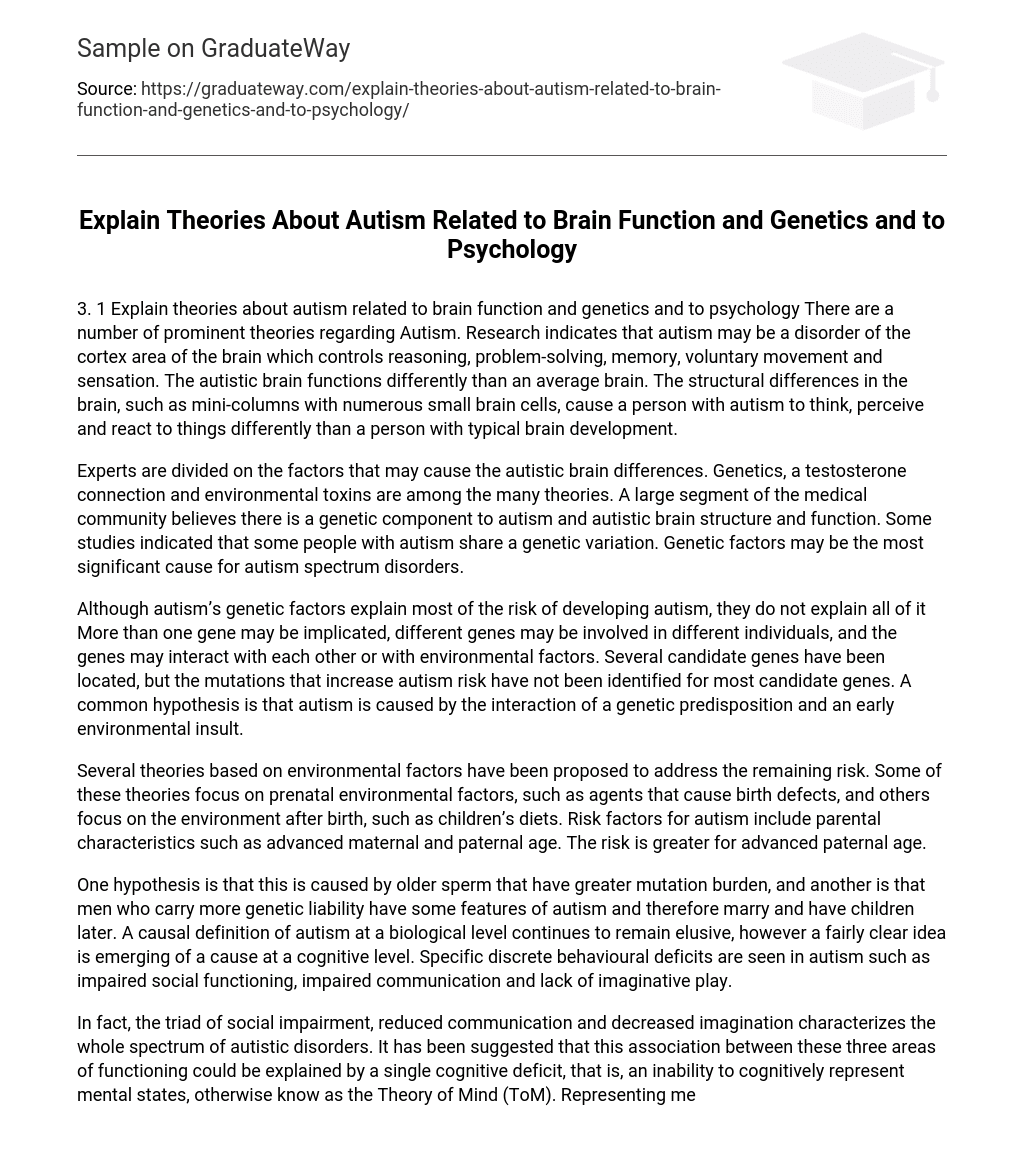There are a number of prominent theories regarding Autism. Research indicates that autism may be a disorder of the cortex area of the brain which controls reasoning, problem-solving, memory, voluntary movement and sensation. The autistic brain functions differently than an average brain. The structural differences in the brain, such as mini-columns with numerous small brain cells, cause a person with autism to think, perceive and react to things differently than a person with typical brain development.
Experts are divided on the factors that may cause the autistic brain differences. Genetics, a testosterone connection and environmental toxins are among the many theories. A large segment of the medical community believes there is a genetic component to autism and autistic brain structure and function. Some studies indicated that some people with autism share a genetic variation. Genetic factors may be the most significant cause for autism spectrum disorders.
Although autism’s genetic factors explain most of the risk of developing autism, they do not explain all of it More than one gene may be implicated, different genes may be involved in different individuals, and the genes may interact with each other or with environmental factors. Several candidate genes have been located, but the mutations that increase autism risk have not been identified for most candidate genes. A common hypothesis is that autism is caused by the interaction of a genetic predisposition and an early environmental insult.
Several theories based on environmental factors have been proposed to address the remaining risk. Some of these theories focus on prenatal environmental factors, such as agents that cause birth defects, and others focus on the environment after birth, such as children’s diets. Risk factors for autism include parental characteristics such as advanced maternal and paternal age. The risk is greater for advanced paternal age.
One hypothesis is that this is caused by older sperm that have greater mutation burden, and another is that men who carry more genetic liability have some features of autism and therefore marry and have children later. A causal definition of autism at a biological level continues to remain elusive, however a fairly clear idea is emerging of a cause at a cognitive level. Specific discrete behavioural deficits are seen in autism such as impaired social functioning, impaired communication and lack of imaginative play.
In fact, the triad of social impairment, reduced communication and decreased imagination characterizes the whole spectrum of autistic disorders. It has been suggested that this association between these three areas of functioning could be explained by a single cognitive deficit, that is, an inability to cognitively represent mental states, otherwise know as the Theory of Mind (ToM). Representing mental states such as belief and desire is required to predict other people’s behaviour a skill which those with an ASC are greatly impaired at.





